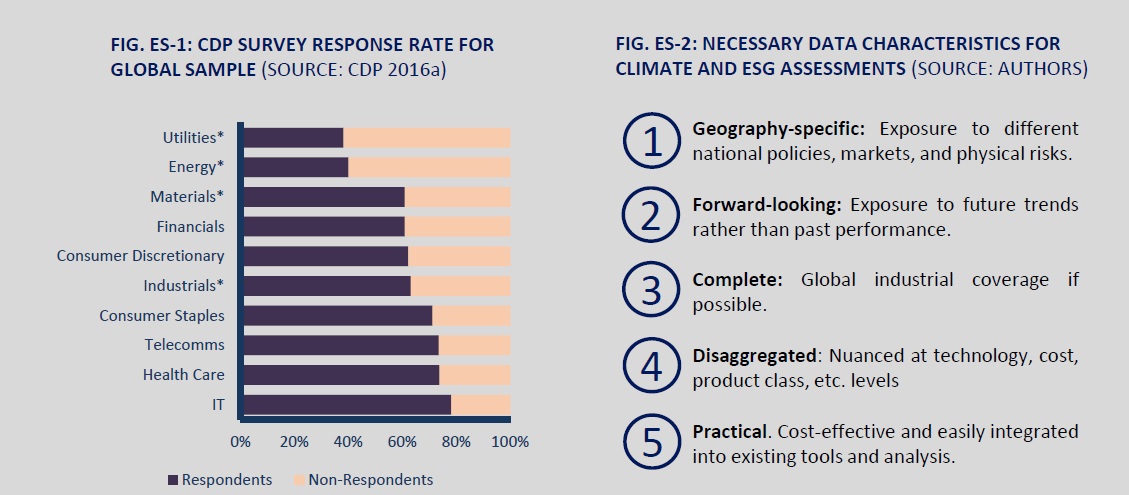Asset-level data and climate-related financial analysis: a market survey
EXECUTIVE SUMMARY
The need for climate-related financial data. Policy processes across a range of countries (e.g. France, Switzerland, China, etc.), and at international level (e.g. G20, FSB Task Force on Climate-Related Financial Disclosures (TCFD), EU Non-Financial Reporting Directive) stress the importance of transparency on climate-related data and performance indicators in financial markets and public policy. At the same time, data completeness, quality, and consistency, notably the issue of non-disclosure (Fig ES-1), have emerged as key limiting factors in current climaterelated assessments by investors, such as portfolio carbon footprinting (Kepler-Cheuvreux 2015).
Asset-level data: The solution? Some experts have questioned whether existing asset-level and market intelligence databases may hold the key to solving these issues, since they possess many of the characteristics necessary for climate-related assessments (Fig ES-2; 2ii and Oxford 2016; Caldecott & Kruitwagen 2016):
• Geographic and technological detail: Data are often geolocated—which is critical for assessing physical risk and country-level transition risks and policies—and also available with technological and economic detail in most sectors;
• Completeness and consistency: Due to their sources (see Section 3.2), such data are often universal or nearuniversal in coverage, eliminating non-disclosure bias and providing consistency across companies.
• Forward-looking: In some sectors, capital plans (i.e. planned assets) can help to show not only where a company is today but also its future capital planning, allowing forward-looking scenario analysis.
However, currently a significant information gap exists in the market on what data are already available and how they can be utilized by ESG data providers, investors and financial institutions, policymakers, and the broader public. Currently such climate data users must spend considerable resources seeking out data providers, reviewing sales pitches, etc. and may still miss the data most pertinent to their needs.
Report preview.This report surveys the current state of asset-level climate data in 9 sectors to fill this void. While only a sample of existing data across 9 climate-relevant sectors (see pg. 9-10), it answers critical questions like:
• Which climate performance data are already available in the market for the most important climate related sectors? (Sections 3.1-3.3)
• What are the key underlying sources for this data and what are the implications for data quality and reliability (Sections 3.1-3.2)?
• What are the key barriers for financial institutions and policymakers in terms of access (Section 4.3)?
• What is the way forward to create comprehensive and cost-effective access to climate data (Section 4.4)?
To download the full report, please click here.

